1. Coughing up blood which can be distressing
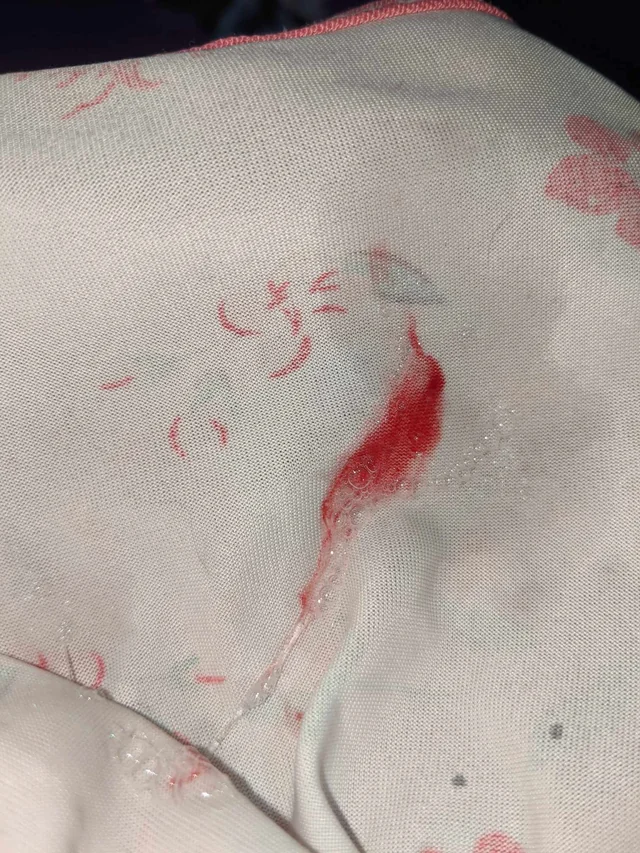
Image source: Reddit
Hemoptysis, or coughing up blood, can occur when the airways or lung tissue become inflamed or damaged due to infection. While hemoptysis is not common in pneumonia, it can be alarming and may indicate more severe lung involvement or underlying respiratory conditions.
2. A cough which can vary in intensity
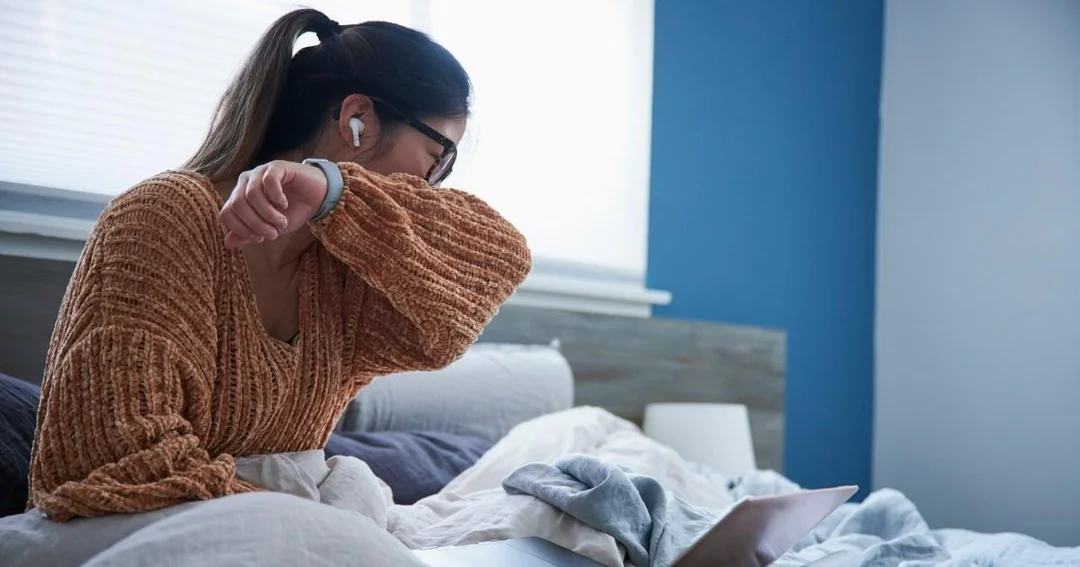
Image source: Reddit
The cough in pneumonia can vary in intensity and frequency. It may start as a dry cough and progress to a productive cough as the infection worsens. The mucus produced during coughing may change color over time, typically becoming yellow, green, or even tinged with blood as the infection persists.
3. A persistent fever
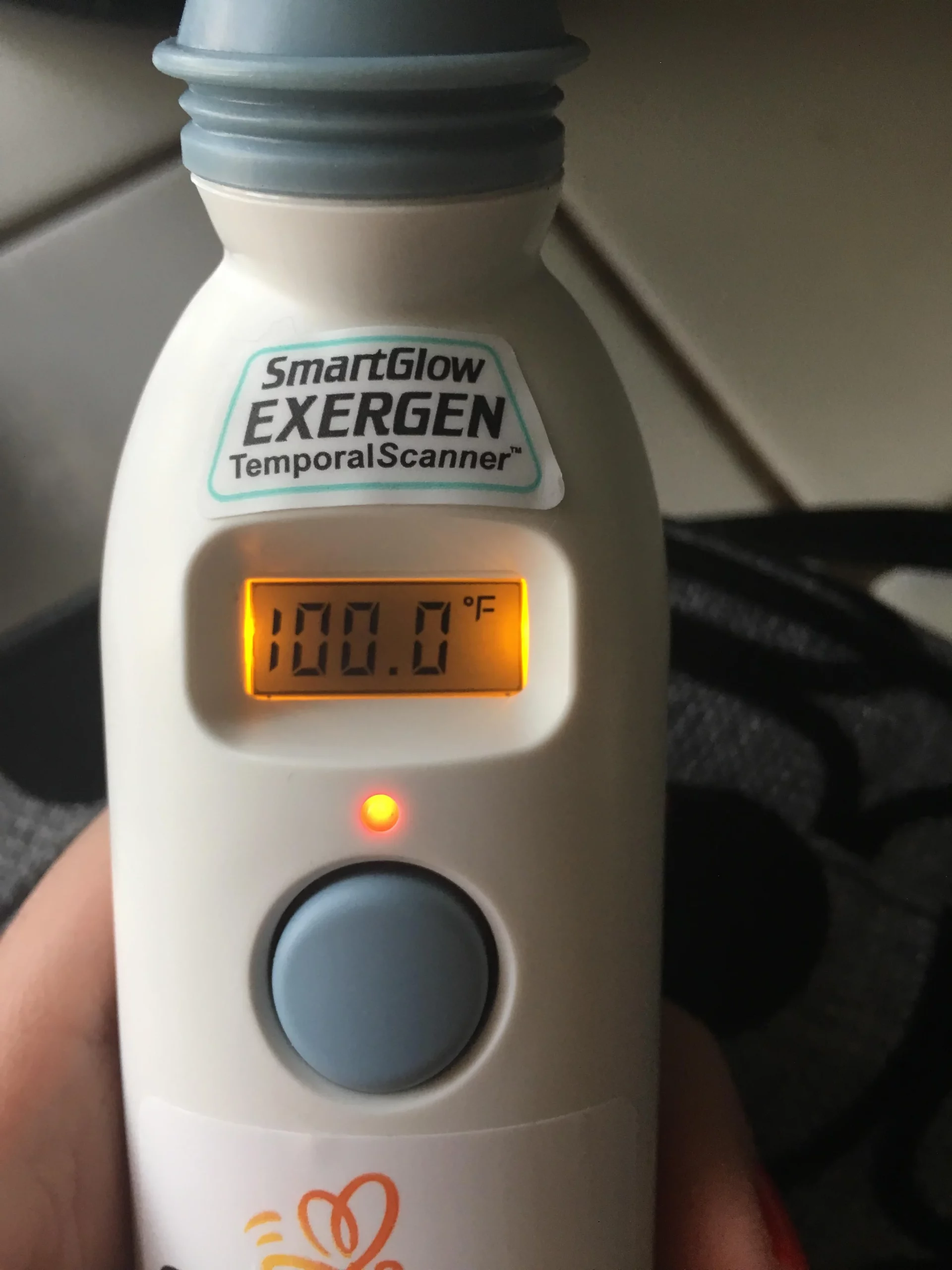
Image source: Reddit
Fever is a cardinal sign of inflammation and infection. In pneumonia, fever is often persistent and may fluctuate in intensity. Monitoring body temperature regularly is important, as it can help gauge the effectiveness of treatment and the progression of the illness.
4. Feeling the chills

Image source: Reddit
Chills are often an early sign of infection and typically accompany the onset of fever. They result from the body's attempt to generate heat and raise its core temperature to combat the invading pathogens. Cover yourself in thin cotton layers to hold in the heat.
5. Mild or severe shortness of breath
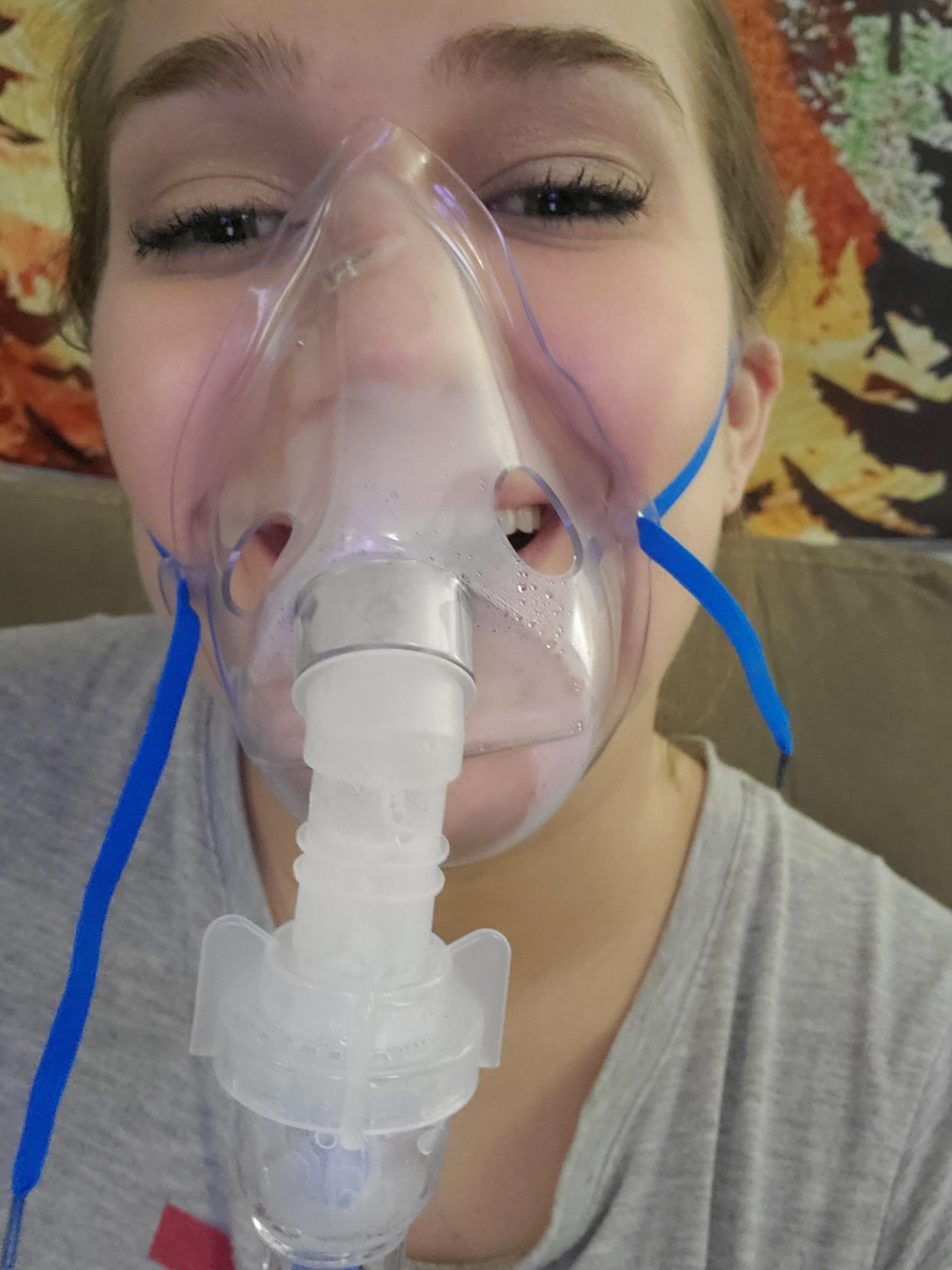
Image source: Reddit
Shortness of breath, also known as dyspnea, can range from mild to severe in pneumonia. It occurs due to inflammation and fluid accumulation in the air sacs (alveoli) of the lungs, reducing their capacity to exchange oxygen and carbon dioxide efficiently.
6. A stabbing chest pain
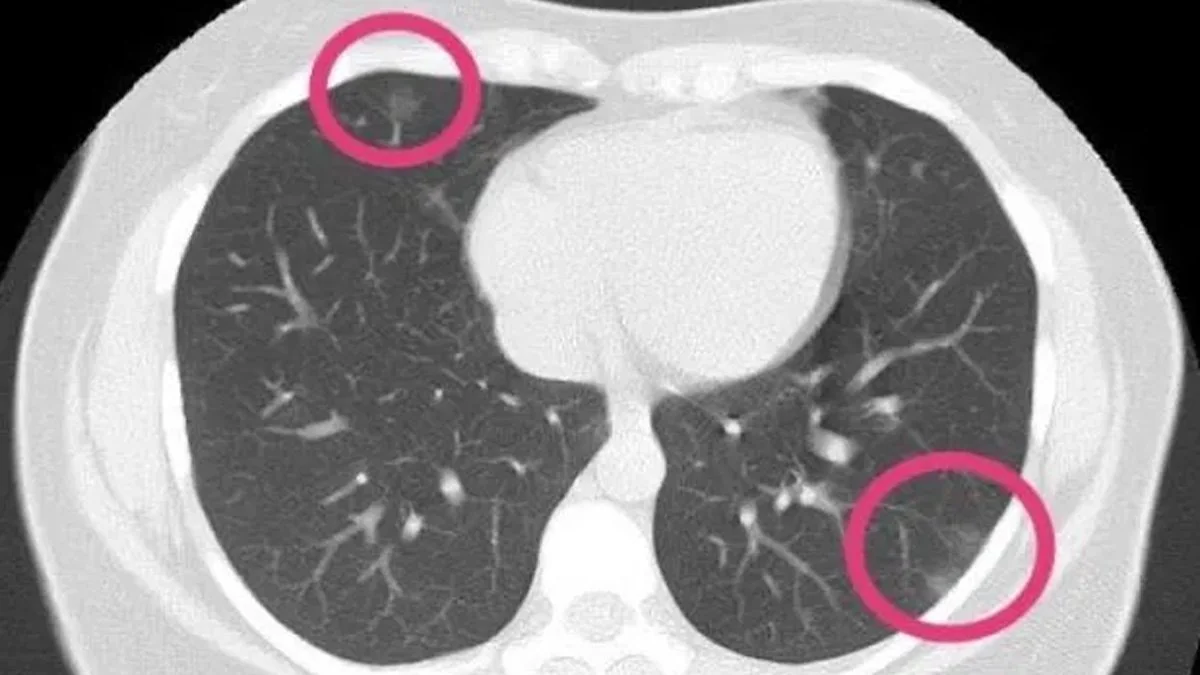
Image source: Reddit
Chest pain in pneumonia can be localized or diffuse and is often described as sharp or stabbing. The pain may worsen with deep breathing, coughing, or movement, as these actions put additional strain on the inflamed lung tissue. Stay propped up at all times.
7. Your breathing is rapid

Image source: Reddit
Tachypnea, or rapid breathing, is a compensatory mechanism aimed at increasing oxygen intake and eliminating carbon dioxide from the body. In pneumonia, rapid breathing helps maintain adequate oxygenation in the bloodstream despite compromised lung function.
8. Feeling really tired

Image source: Reddit
Fatigue is a common symptom of pneumonia and can persist even after other symptoms improve. Even a short walk could wipe you out. It results from the body's heightened metabolic demands during infection and the diversion of energy resources to the immune response.
9. Sweating during fever episodes
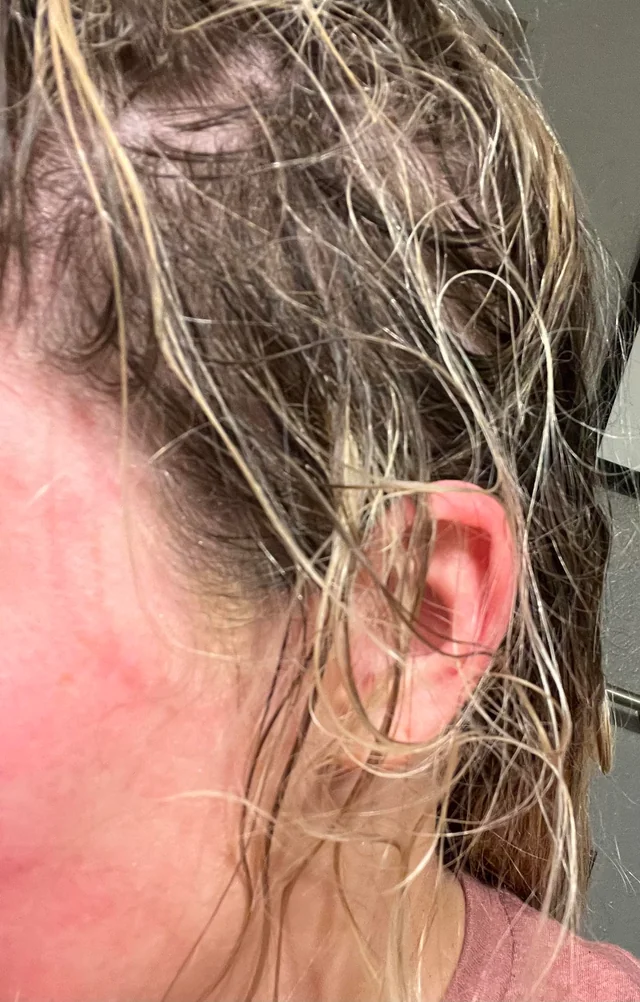
Image source: Reddit
Sweating, particularly during fever episodes, is the body's natural response to regulate temperature. Excessive sweating can lead to dehydration if fluid losses are not replenished adequately. Even if you don't feel like drinking, keep sipping so as not to get dehydrated.
10. Fingernails and lips may be blue
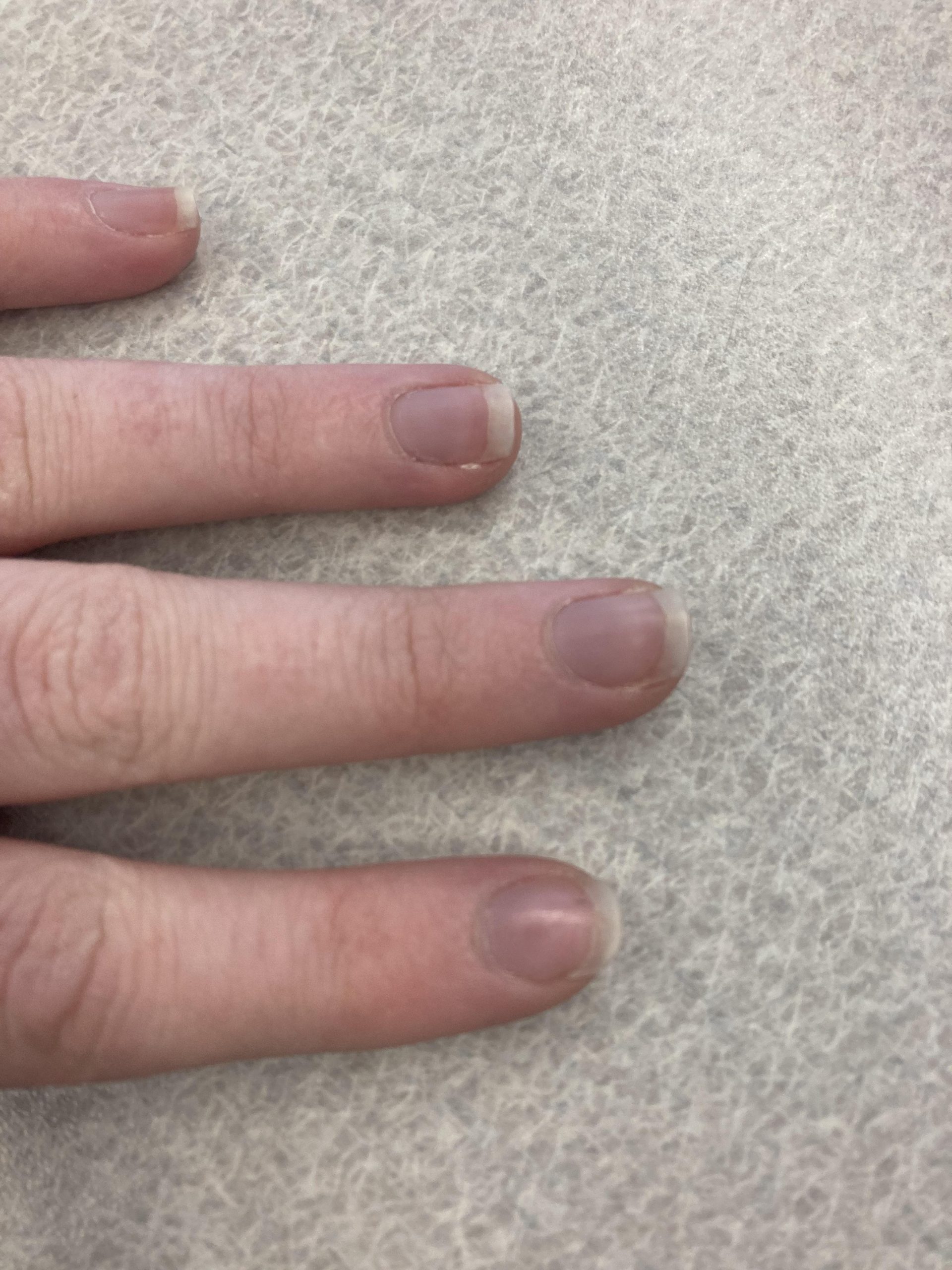
Image source: Reddit
Cyanosis, characterized by bluish discoloration of the lips, fingertips, or skin, indicates inadequate oxygenation of the blood. It is a medical emergency and requires immediate evaluation and intervention to improve oxygen delivery to the tissues. Do NOT wait to see if it improves.
11. Feeling confused

Image source: Reddit
Confusion and altered mental status can occur in severe cases of pneumonia, particularly in older adults and individuals with underlying health conditions. Reduced oxygen supply to the brain and systemic effects of infection contribute to cognitive impairment.
12. A banging headache

Image source: Reddit
Headaches in pneumonia can result from various factors, including the body's inflammatory response to the infection, increased pressure within the sinuses due to congestion, or dehydration resulting from fever and sweating. Headaches may vary in intensity and character, ranging from dull and persistent to sharp and throbbing.
13. Nausea and vomiting symptoms

Image source: Reddit
Nausea and vomiting can occur in pneumonia due to several reasons, including the body's systemic response to infection, irritation of the stomach lining by swallowed mucus, or the presence of inflammatory mediators circulating in the bloodstream. In severe cases of pneumonia or when complications such as pleurisy or lung abscess develop, nausea and vomiting may become more pronounced.
14. Not feeling hungry

Image source: Reddit
Loss of appetite is a common symptom of pneumonia and reflects the body's prioritization of resources toward fighting the infection. Inflammation, fever, and changes in taste perception can contribute to diminished appetite. While it's important to encourage adequate nutrition, individuals with pneumonia may find it challenging to eat due to fatigue and discomfort.
15. Wheezing due to airway inflammation
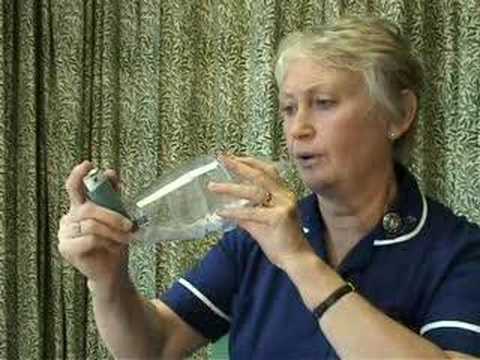
Image source: Reddit
Wheezing occurs when there is narrowing or obstruction of the airways, leading to turbulent airflow during breathing. In pneumonia, wheezing may develop due to airway inflammation, bronchoconstriction, or the presence of excess mucus in the air passages.
16. Dehydration from sweating
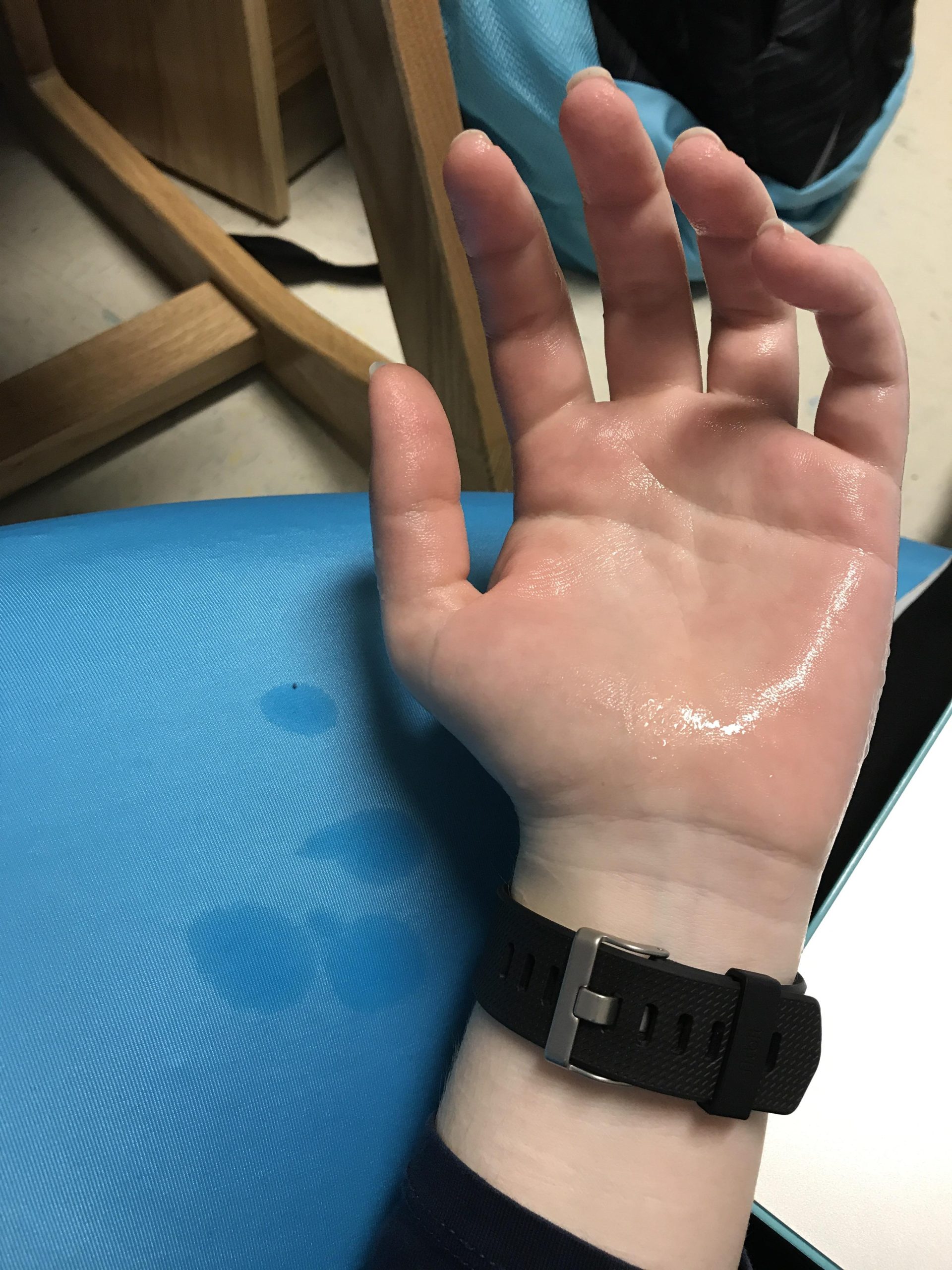 Image source: Reddit
Image source: Reddit
Dehydration can occur in pneumonia due to fever-induced sweating, decreased fluid intake resulting from loss of appetite, or respiratory fluid losses associated with rapid breathing. Symptoms of dehydration include dry mouth, decreased urine output, dark-colored urine, and lethargy.
17. Cyanosis due to lung inflammation

Image source: Reddit
Cyanosis occurs when there is insufficient oxygenation of the blood, leading to a bluish discoloration of the skin, lips, and mucous membranes. In pneumonia, cyanosis may develop as a result of impaired gas exchange in the lungs due to inflammation, consolidation, or ventilation-perfusion mismatch.
18. Difficulty with swallowing
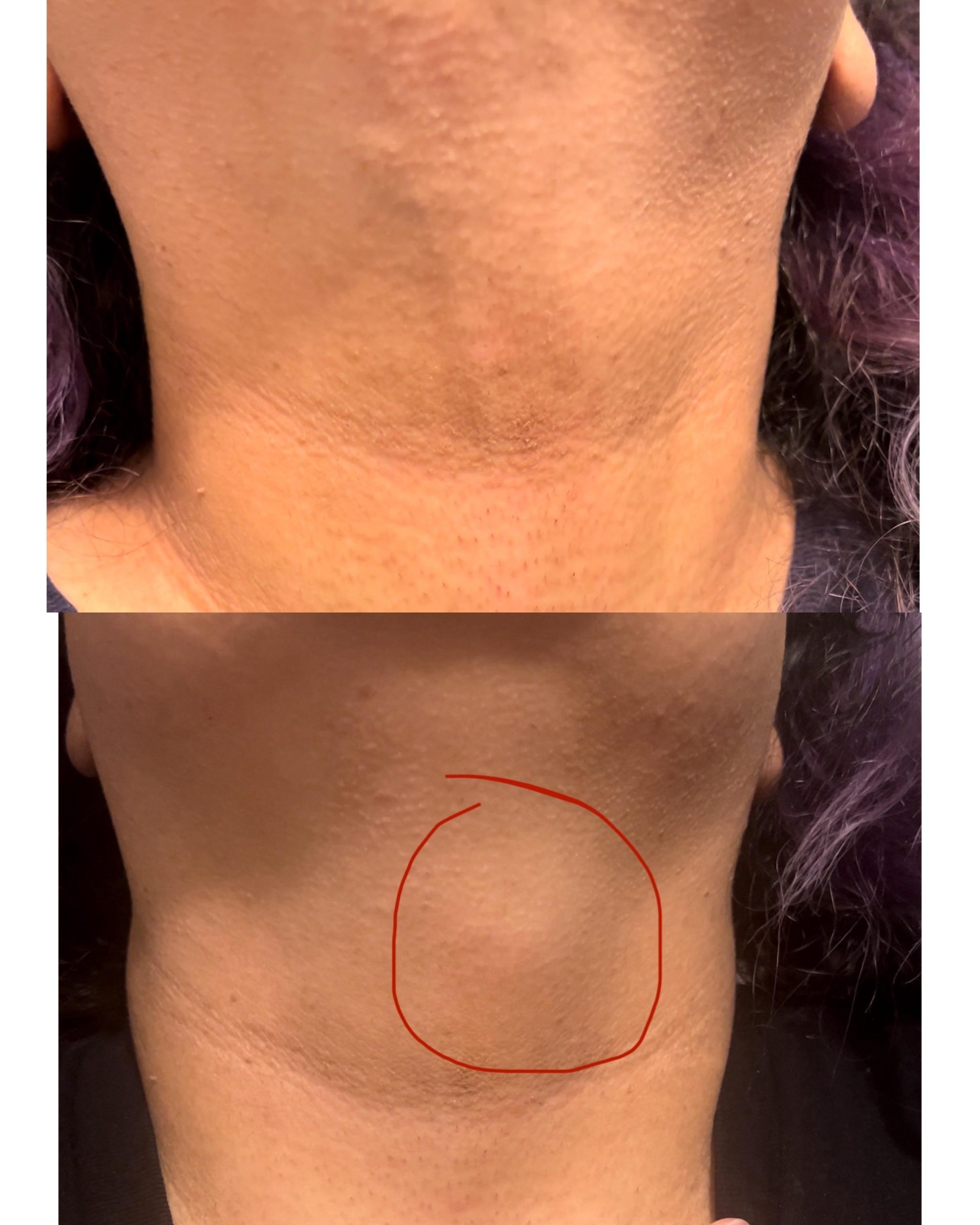
Image source: Reddit
Swallowing difficulties, known as dysphagia, may arise in pneumonia due to inflammation of the throat or oesophagus, or if there is aspiration of food or fluids into the lungs. Dysphagia can result in discomfort, coughing, or choking during swallowing, leading to reduced oral intake and increased risk of aspiration pneumonia.
19. Having a productive cough
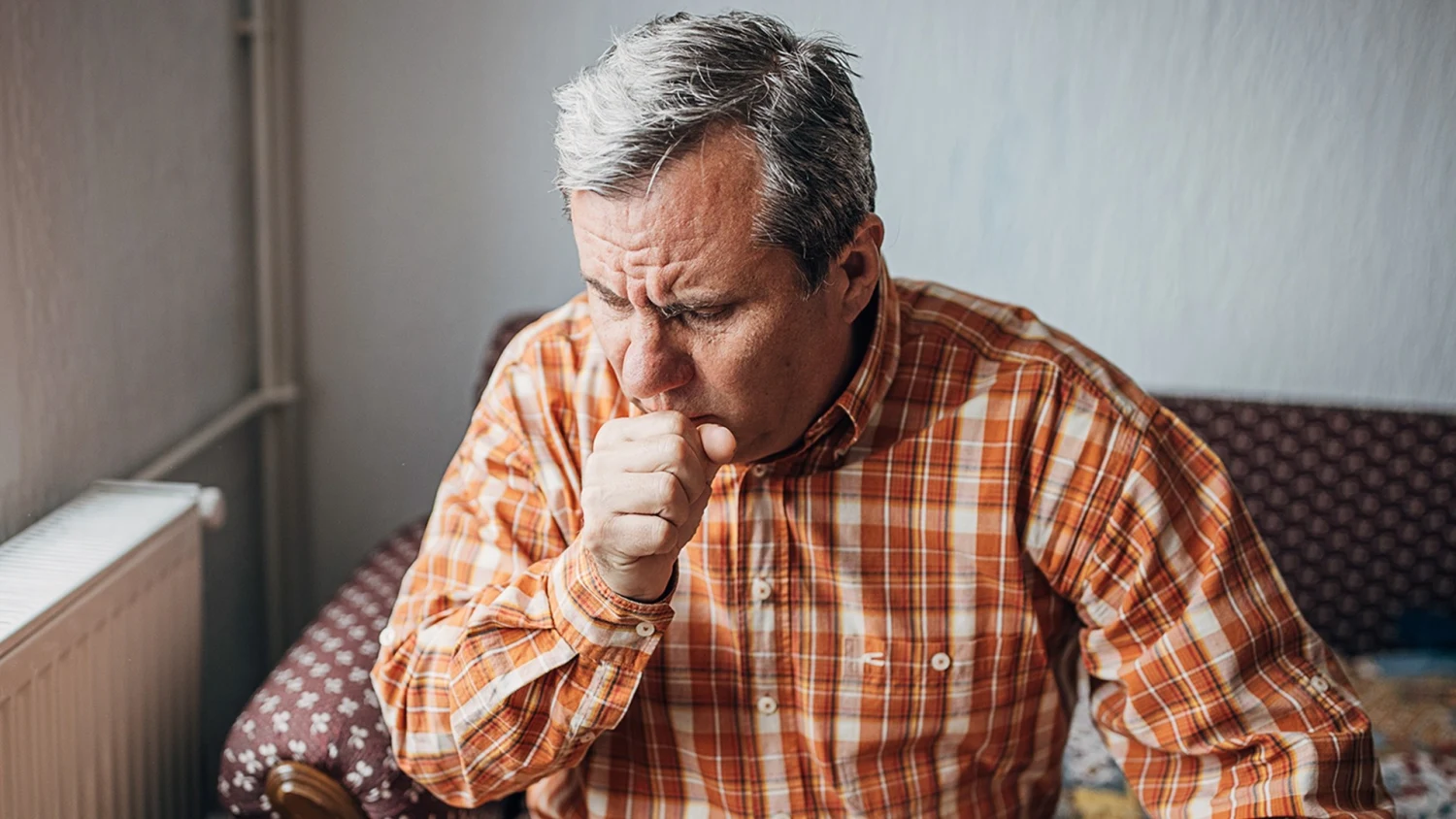
Image source: The Today Show
A productive cough is a hallmark symptom of pneumonia, as the body attempts to clear the airways of mucus, cellular debris, and infectious agents. The cough may be accompanied by varying amounts of sputum, which can range from clear or white to yellow, green, or rusty in color, depending on the causative organism and the stage of infection.
20. Feeling really weak
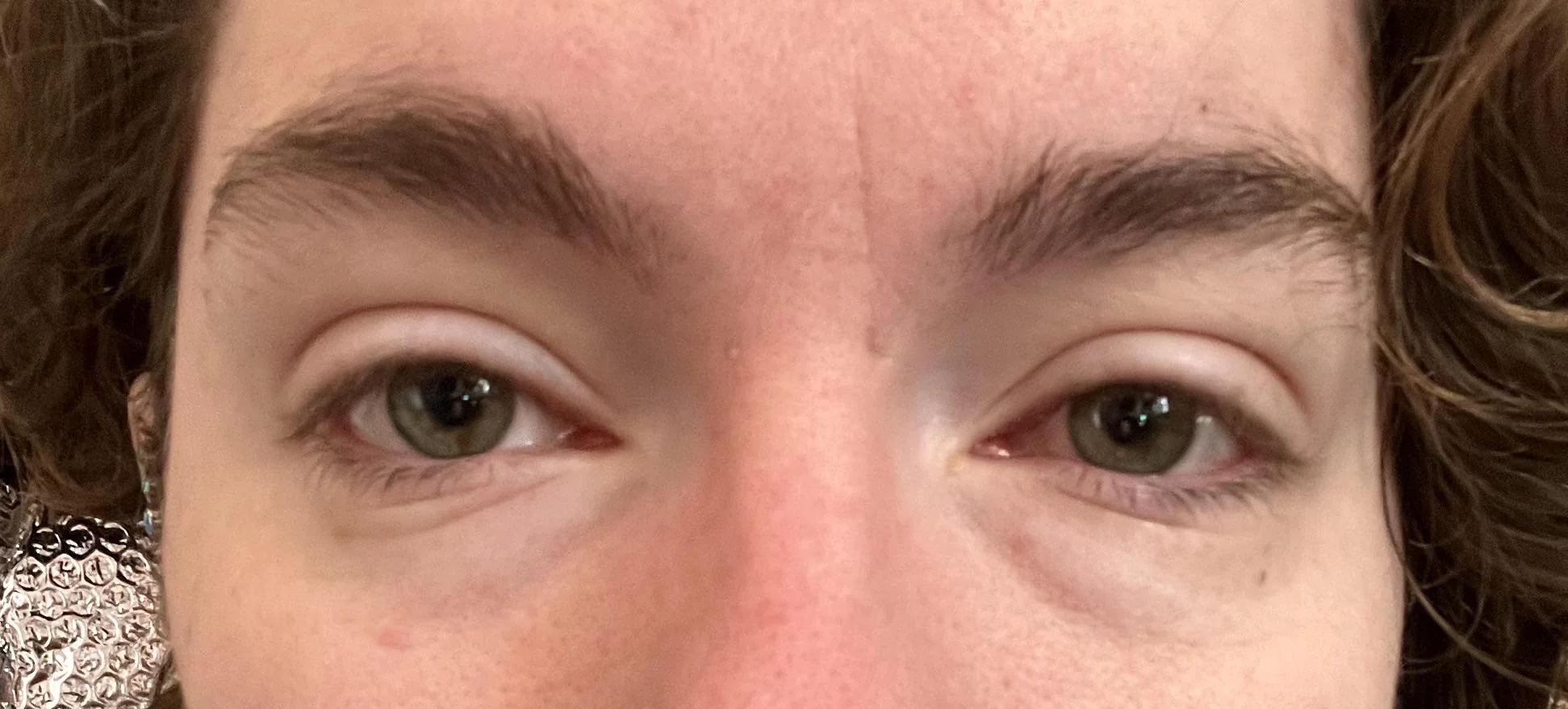
Image source: Reddit
Weakness and lethargy are common systemic symptoms of pneumonia, reflecting the body's immune response to infection and the metabolic demands of tissue repair and recovery. Weakness may be generalized or localized to specific muscle groups, and it can impact activities of daily living, mobility, and overall functional status.
21. Uncontrollable shivering and shaking

Image source: The List
Rigors, also known as rigors, are sudden and intense episodes of uncontrollable shivering or shaking, often accompanied by a sensation of coldness or chills. Rigors typically occur in response to a rapid rise in body temperature, such as during fever spikes associated with pneumonia or other systemic infections.
22. Having a rapid heart rate
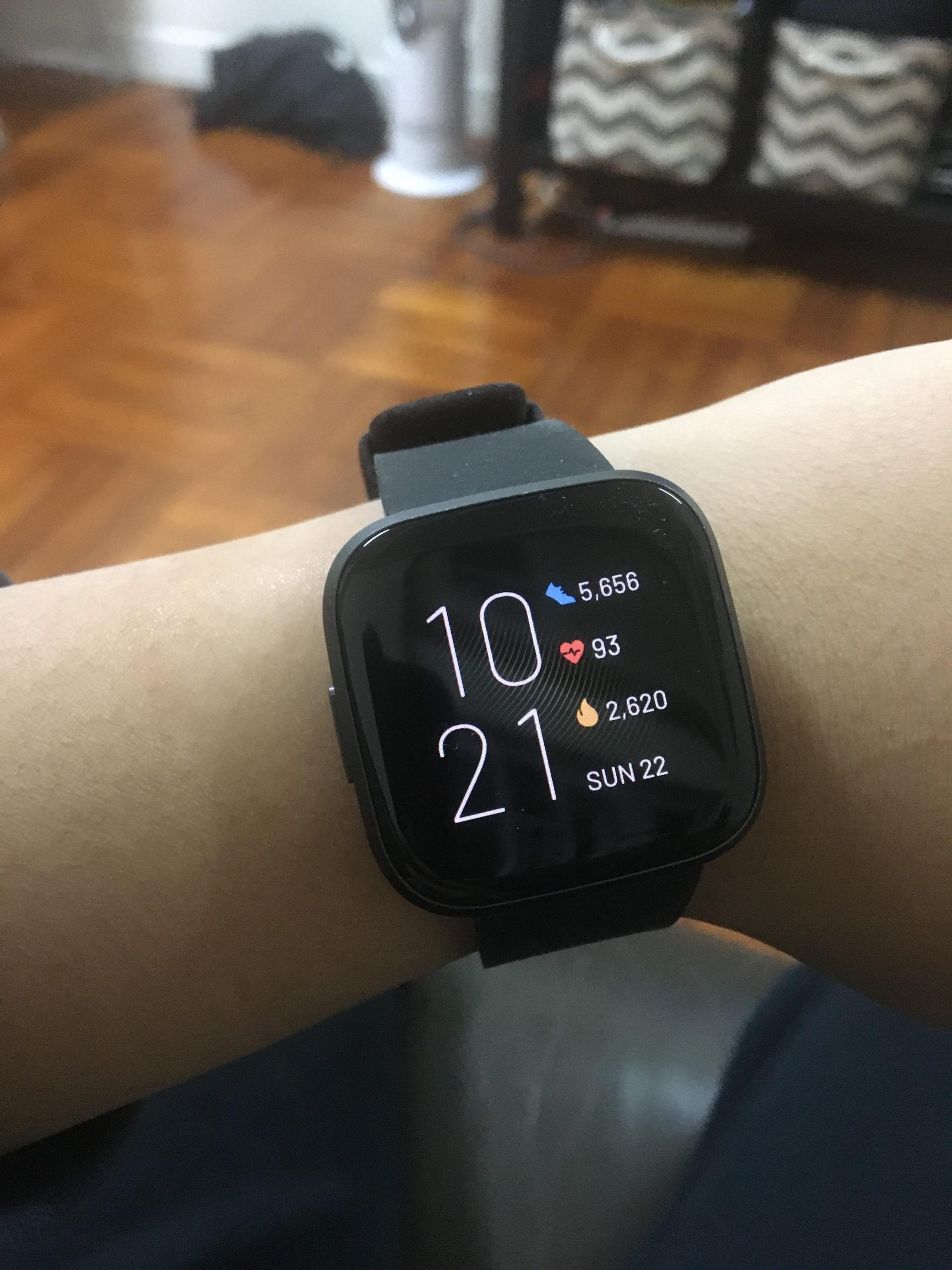
Image source: Reddit
Tachycardia (a rapid heart rate) is the body's response to infection and inflammation in pneumonia, as the heart works harder to pump oxygen-rich blood to tissues. Increased heart rate is often accompanied by other signs of systemic stress, such as fever, sweating, and elevated respiratory rate.
23. Aching muscles and joints
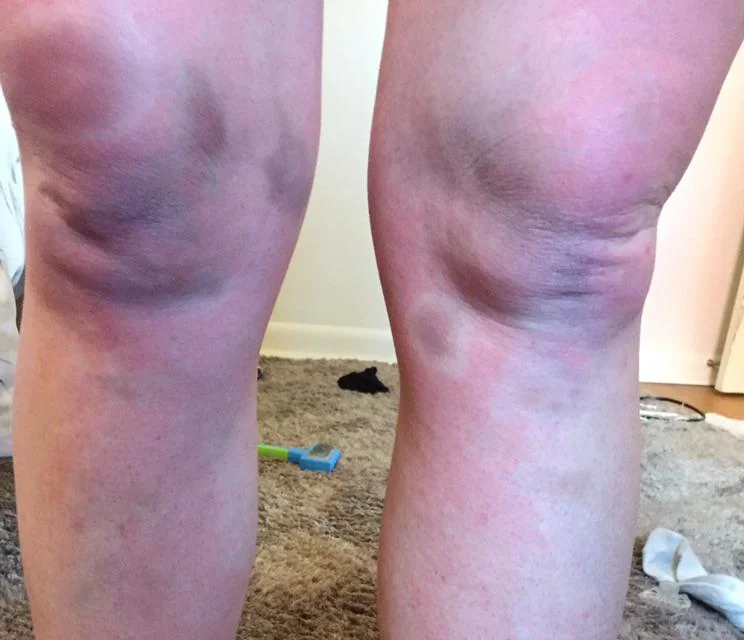
Image source: Reddit
Muscle aches and joint pain are non specific symptoms that can occur with various infections, including pneumonia. In pneumonia, these symptoms result from the release of inflammatory cytokines and immune mediators, which contribute to generalized discomfort and malaise.
24. Shortness of breath even when resting
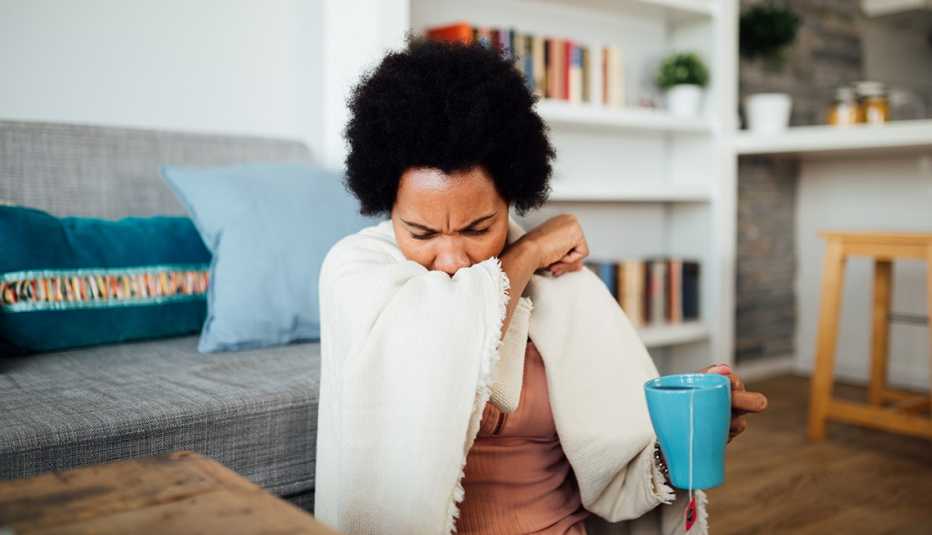
Image source: AARP
Shortness of breath at rest indicates significant impairment of lung function and can occur when inflammation and fluid accumulation within the lungs compromise oxygen exchange. This symptom is concerning and may necessitate immediate medical evaluation and intervention to support respiratory function and oxygenation.
25. Pleuritic chest pain when breathing
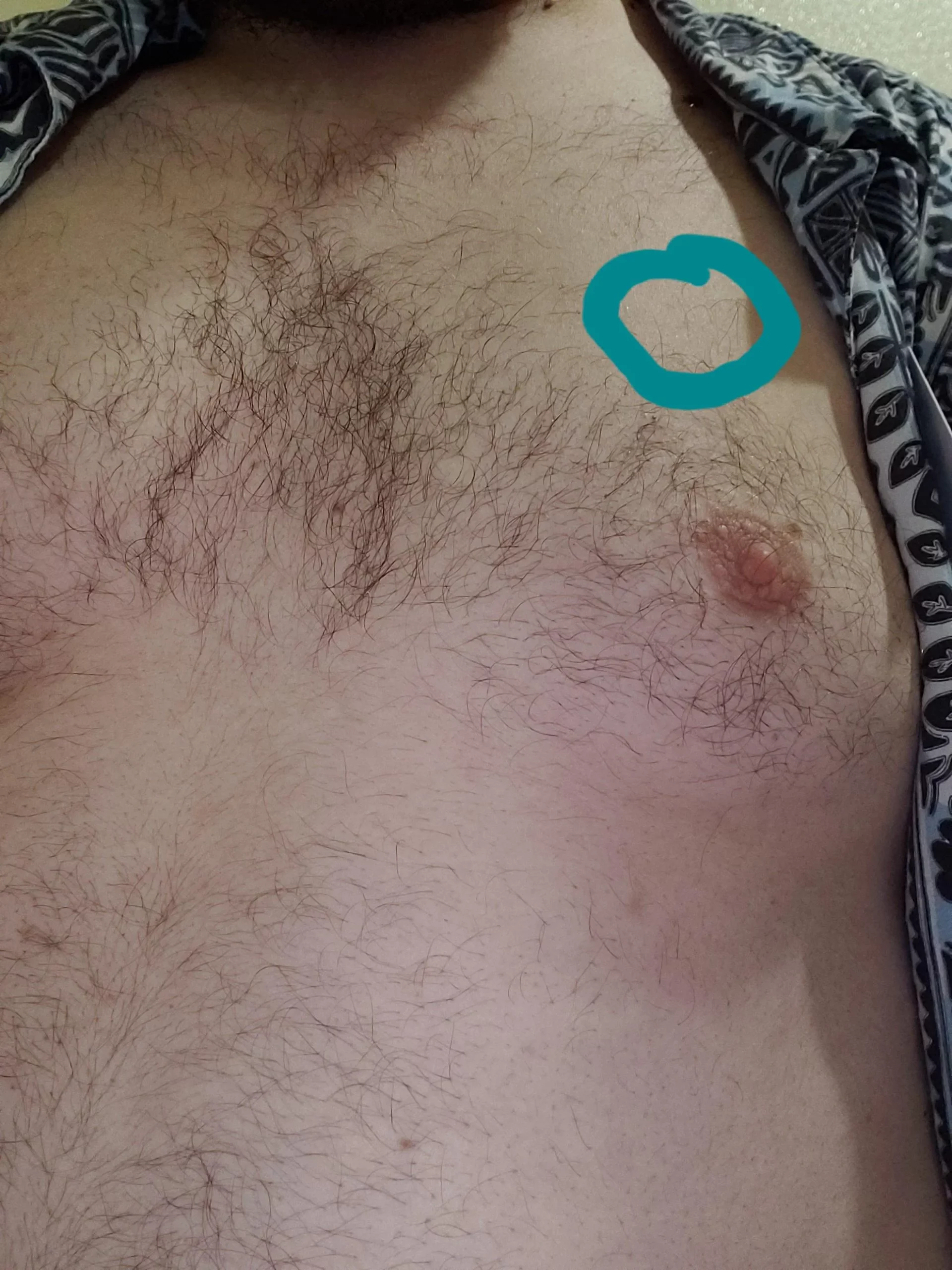
Image source: Reddit
Pleuritic chest pain is a characteristic symptom of pleurisy, which occurs when the inflamed pleural membranes rub against each other during breathing. The sharp, stabbing pain is typically localized and worsens with deep inspiration, coughing, or movement of the chest wall.
26.
Decreased oxygen levels 
Image source: Reddit
Hypoxemia occurs when there is inadequate oxygenation of arterial blood, resulting in reduced oxygen levels in the bloodstream. In pneumonia, hypoxemia may manifest as cyanosis (bluish discoloration of the skin and mucous membranes), altered mental status, and increased respiratory rate.
27. Increased respiratory effort

Image source: Reddit
Increased respiratory effort is evident when individuals exhibit signs of respiratory distress, such as the use of accessory muscles, nasal flaring, and retractions (visible sinking of the skin between ribs and above the collarbone) during breathing .This increased work of breathing reflects the body's attempt to overcome airway obstruction or impaired gas exchange.
28. Dizziness or lightheadedness

Image source: Reddit
Dizziness or lightheadedness can occur in pneumonia due to decreased cerebral perfusion secondary to hypoxemia or systemic effects of infection. Individuals may feel unsteady or faint, especially when standing up quickly or when they try to exert themselves.
29. Unexplained weight loss
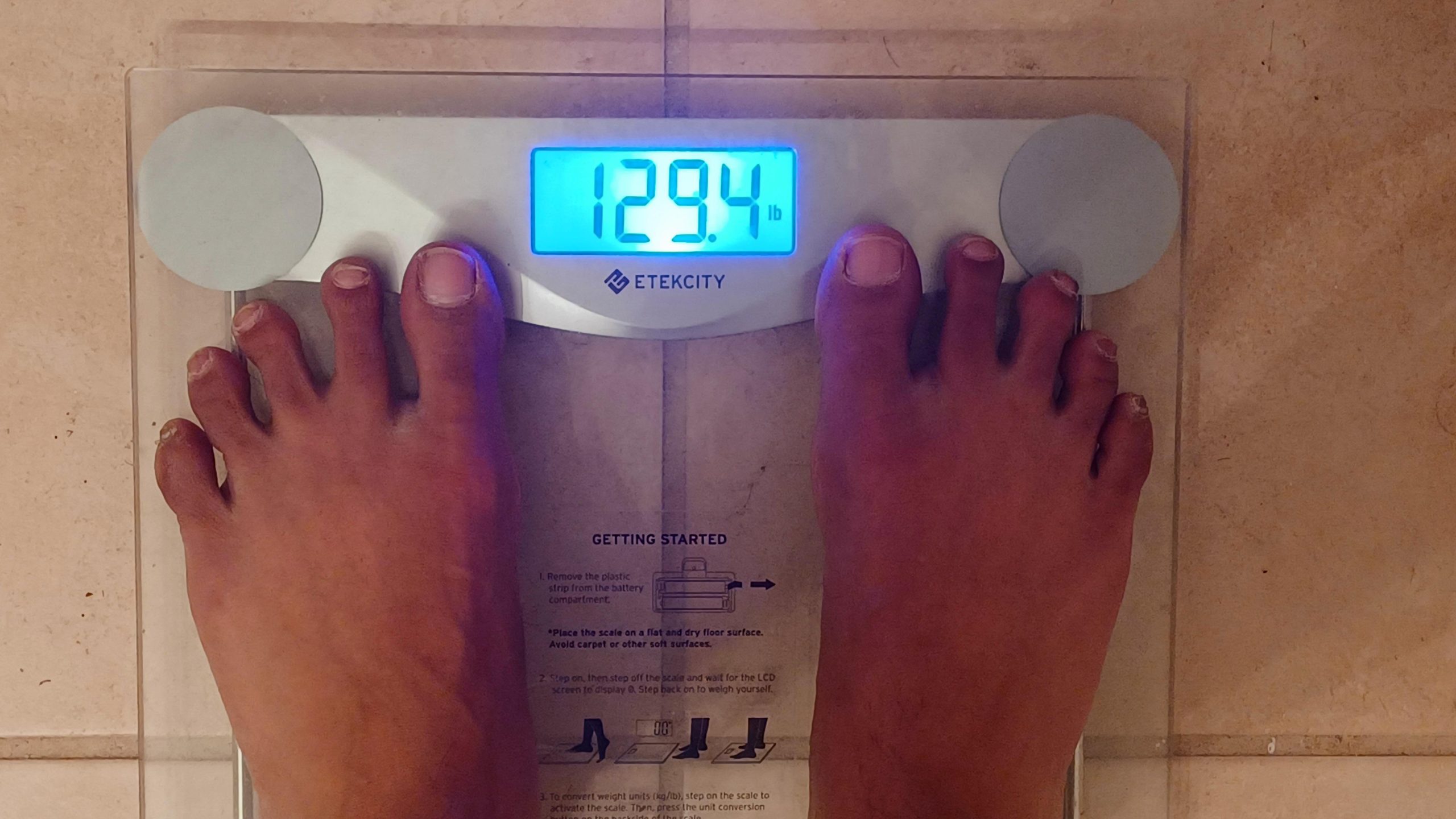
Image source: Reddit
Unintentional weight loss is a non specific symptom of many chronic illnesses, including pneumonia. Weight loss in pneumonia may result from decreased appetite, increased metabolic demands during infection, and catabolic effects of systemic inflammation.
30. Persistent fatigue

Image source: Reddit
Fatigue and weakness can persist even after the acute phase of pneumonia resolves, as the body continues to recover from the infection. Recovery may be prolonged in individuals with severe pneumonia or those with underlying health conditions, requiring adequate rest, nutrition, and gradual return to normal activities.
31. What to do if you have pneumonia -
Follow your doctor's instructions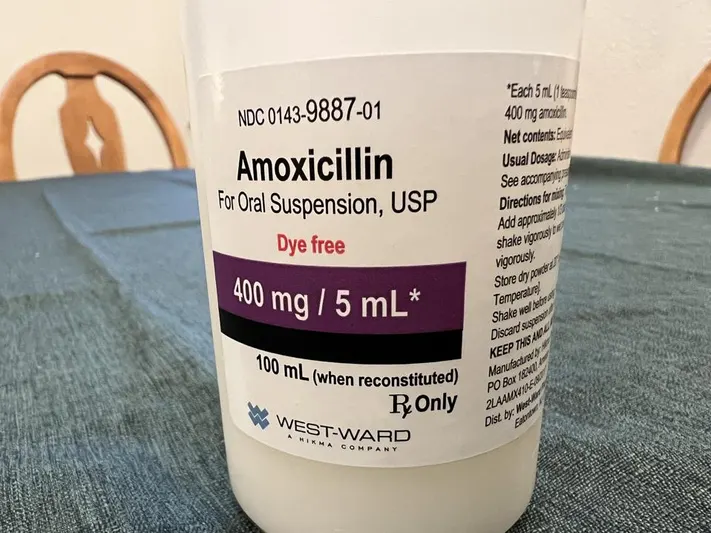
Image source: Forbes
Attend all appointments and follow the treatment plan outlined by your healthcare provider. Communicate any concerns or changes in symptoms to your doctor promptly. If you start to feel worse, don't try and "ride it out." Contact a medical professional.
32. Take prescribed medications

Image source: The Sun
Take antibiotics, antivirals, or other medications exactly as prescribed and the correct dosage. When you hopefully start to feel better be sure to complete the full course of medication or your symptoms could rear their ugly head again. This is really important.
33. Get plenty of rest

Image source: Reddit
Allow your body time to recuperate by getting adequate rest and avoiding physical exertion. Listen to your body's signals and rest as needed throughout the day. When you feel a bit better, take it very easy to start with as your resistance will still be low.
34. Stay well hydrated
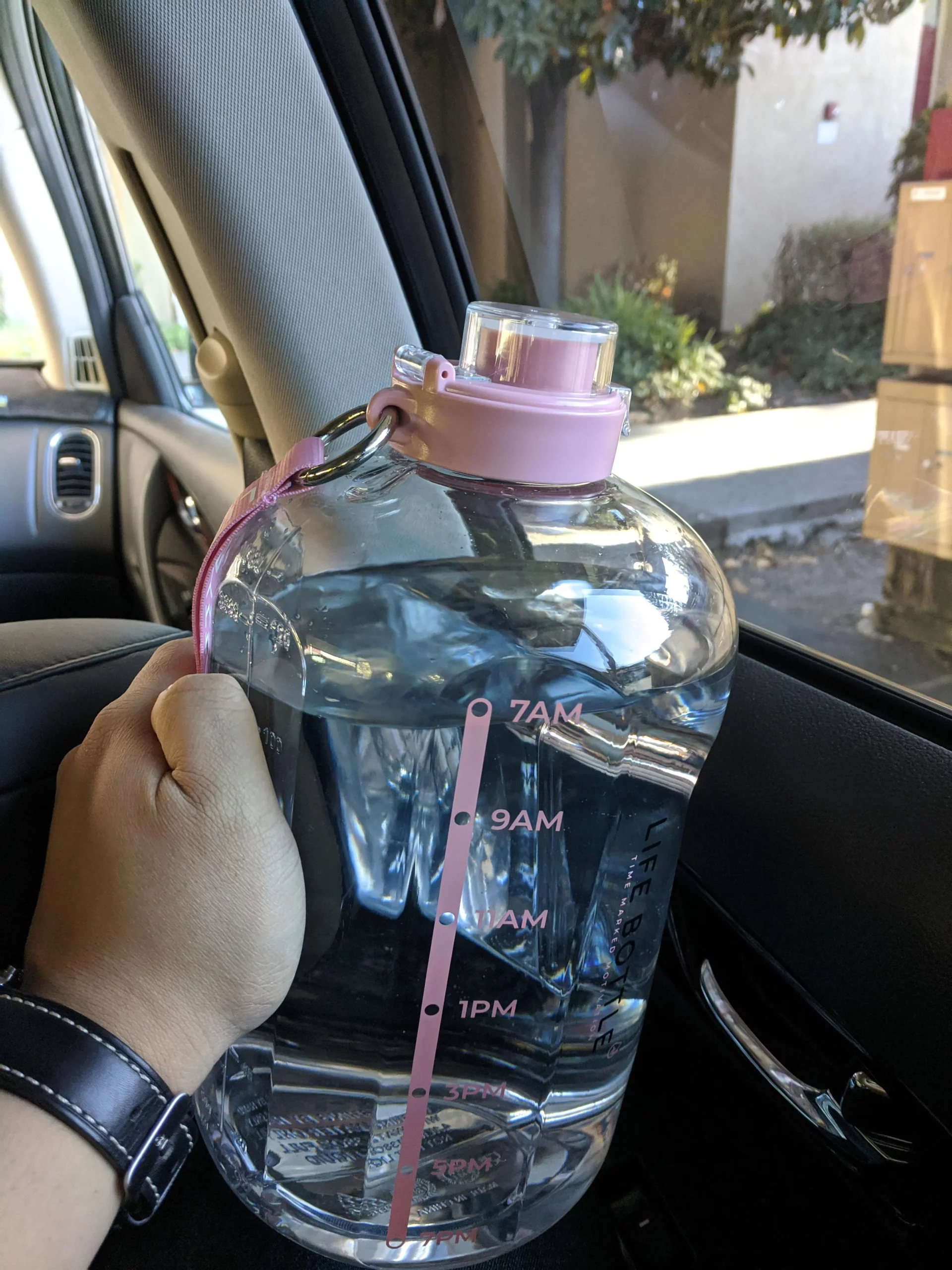
Image source: Reddit
Drink plenty of fluids to prevent dehydration and help loosen mucus in the lungs. Aim for at least eight to ten glasses of water per day, and consider consuming electrolyte-rich beverages if you're experiencing significant fluid losses. If you wake during the night, take small sips of water.
35. Use a humidifier
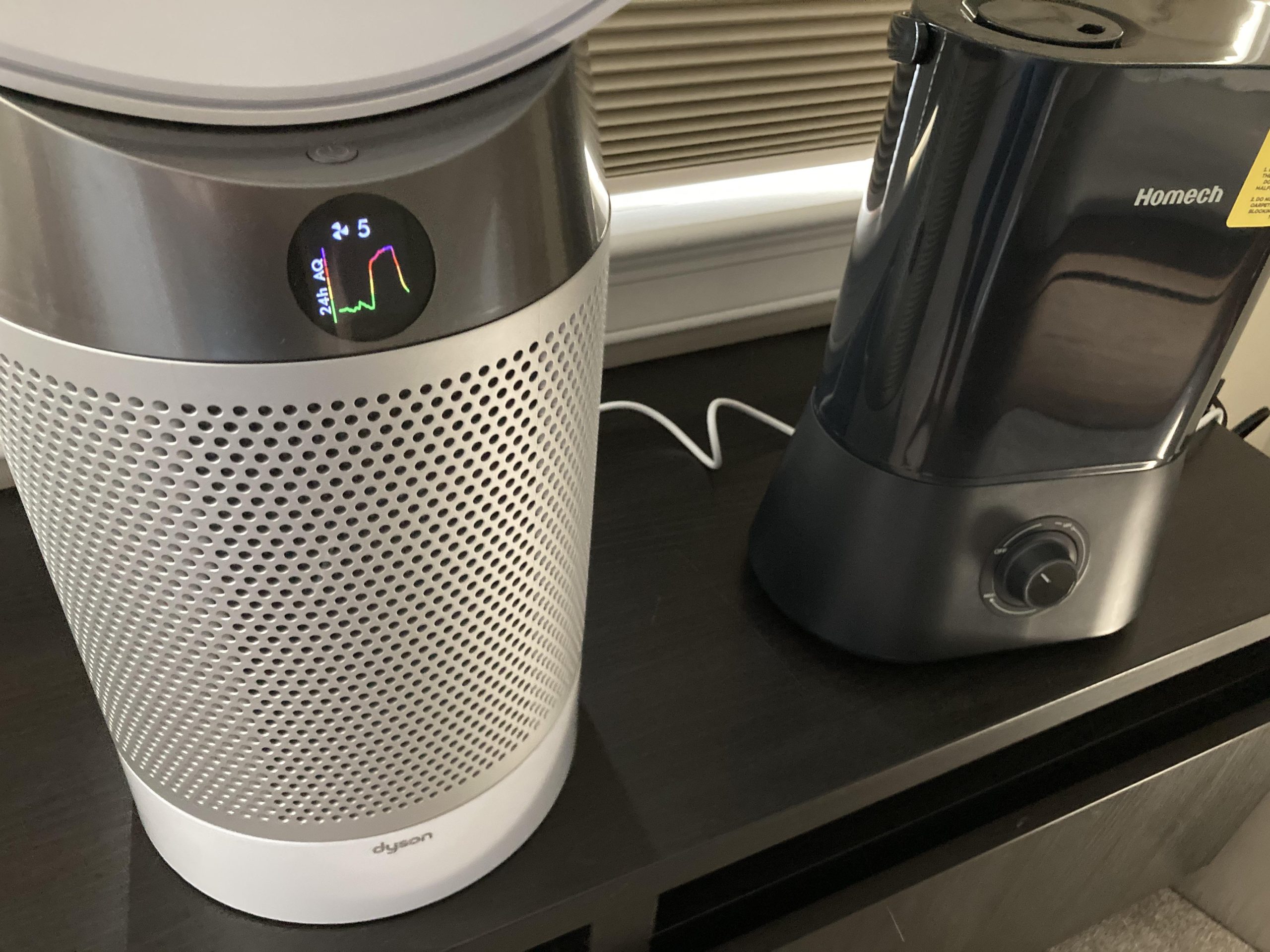
Image source: Reddit
Use a humidifier in your home, especially in your bedroom, to add moisture to the air and ease breathing. Clean the humidifier regularly to prevent the growth of mold and bacteria. If you don't have one, it's worth investing in one as it will help you breathe a little easier.
36. Avoid smoke and irritants
 Image source: Reddit
Image source: Reddit
Steer absolutely clear of tobacco smoke, air pollution, and other respiratory irritants that can exacerbate lung inflammation and worsen symptoms. Create a smoke-free environment in your home and workplace. If not, you are likely to suffer coughing fits.
37. Practice good respiratory hygiene
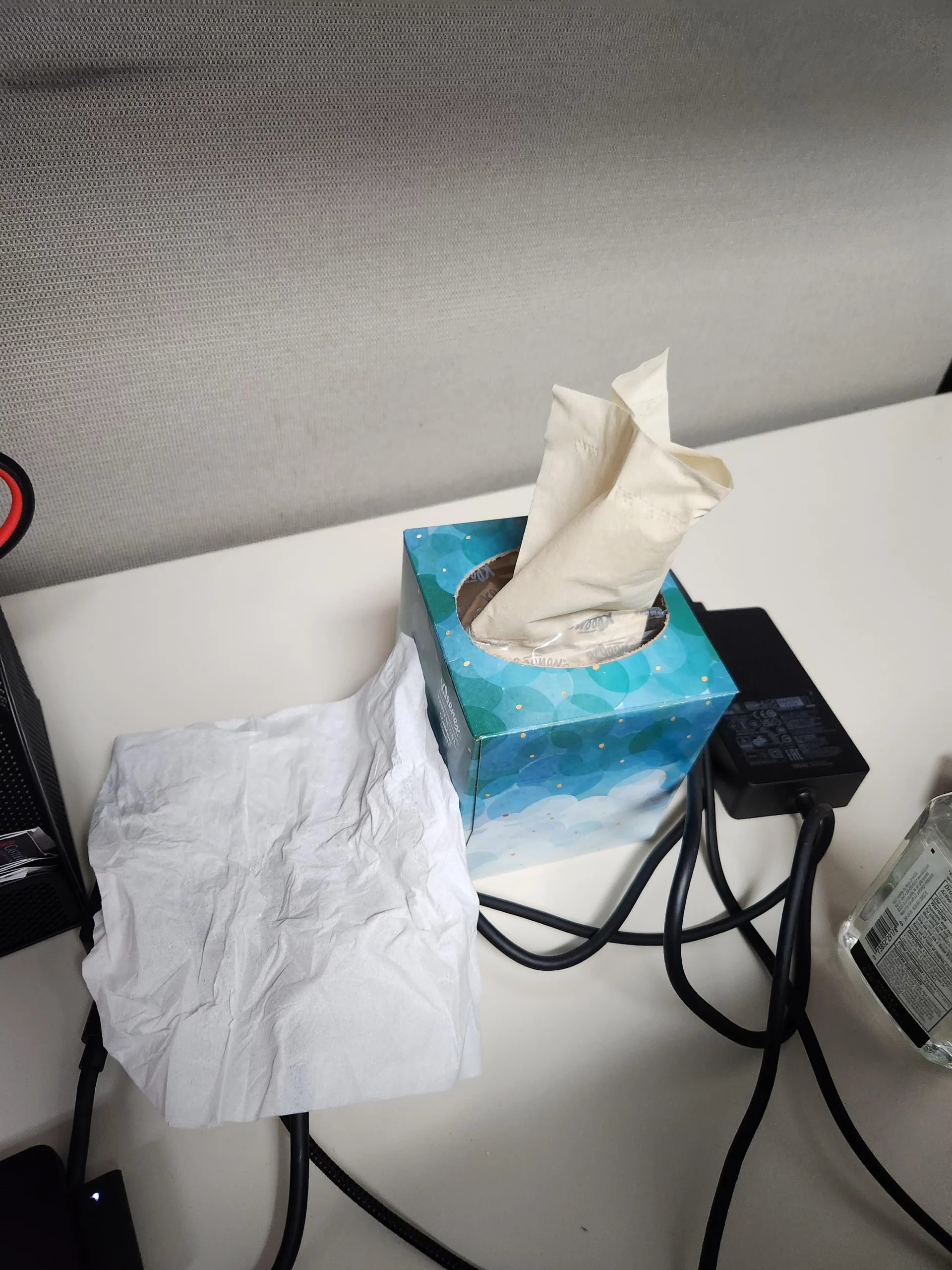 Image source: Reddit
Image source: Reddit
Cover your mouth and nose with a tissue or your elbow when coughing or sneezing to prevent the spread of infectious droplets. Dispose of tissues properly and wash your hands thoroughly afterward. Get into the habit of doing this from now on forever.
38. ......and good hand hygiene
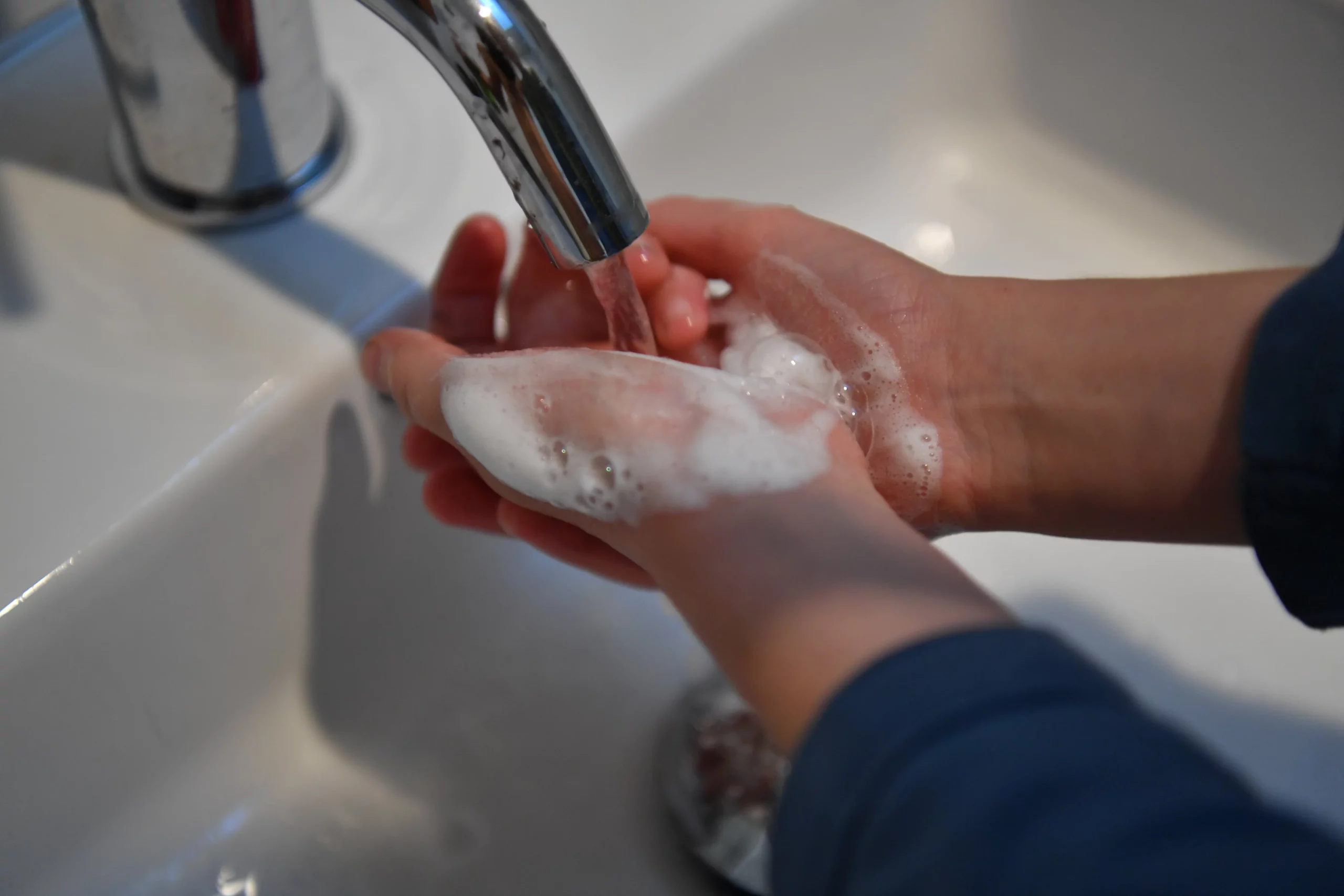 Image source: Reddit
Image source: Reddit
Wash your hands frequently with soap and water for at least 20 seconds, both backs and fronts of the hands, especially before eating, after using the restroom, and after coughing or sneezing. Use alcohol-based hand sanitizer if soap and water are not available.
39. Eat nutritious foods

Image source: Reddit
Consume a balanced diet rich in vitamins, minerals, and antioxidants to support your immune system and aid in recovery. Include plenty of fruits, vegetables, whole grains, lean proteins, and healthy fats in your meals. Berries, such as blueberries, are very nutritious.
40. Avoid alcohol and caffeine

Image source: Reddit
Limit or avoid alcohol and caffeinated beverages, as they can contribute to dehydration and interfere with restorative sleep. Opt for hydrating beverages like water, herbal tea, and broth instead. Soups are a great way to get liquid into your body, as well as vitamin packed vegetables.
41. Use over-the-counter medications
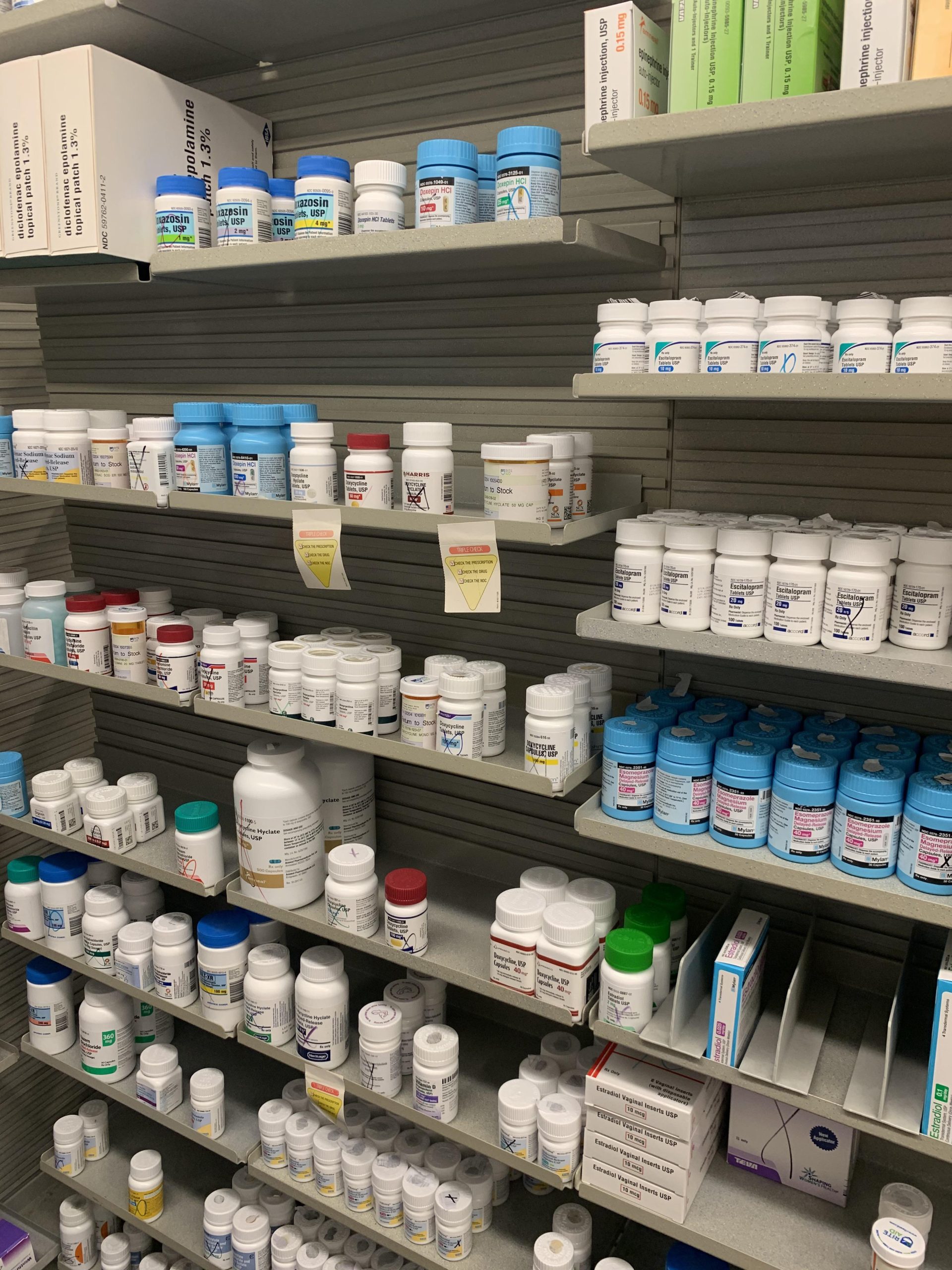
Image source: Reddit
Take over-the-counter pain relievers, such as acetaminophen or ibuprofen, to reduce fever and alleviate discomfort as directed by your healthcare provider. You can ask the pharmacist as to what they would recommend for your exact symptoms. Purchase a good supply so you always have them in your home.
42. Monitor your symptoms
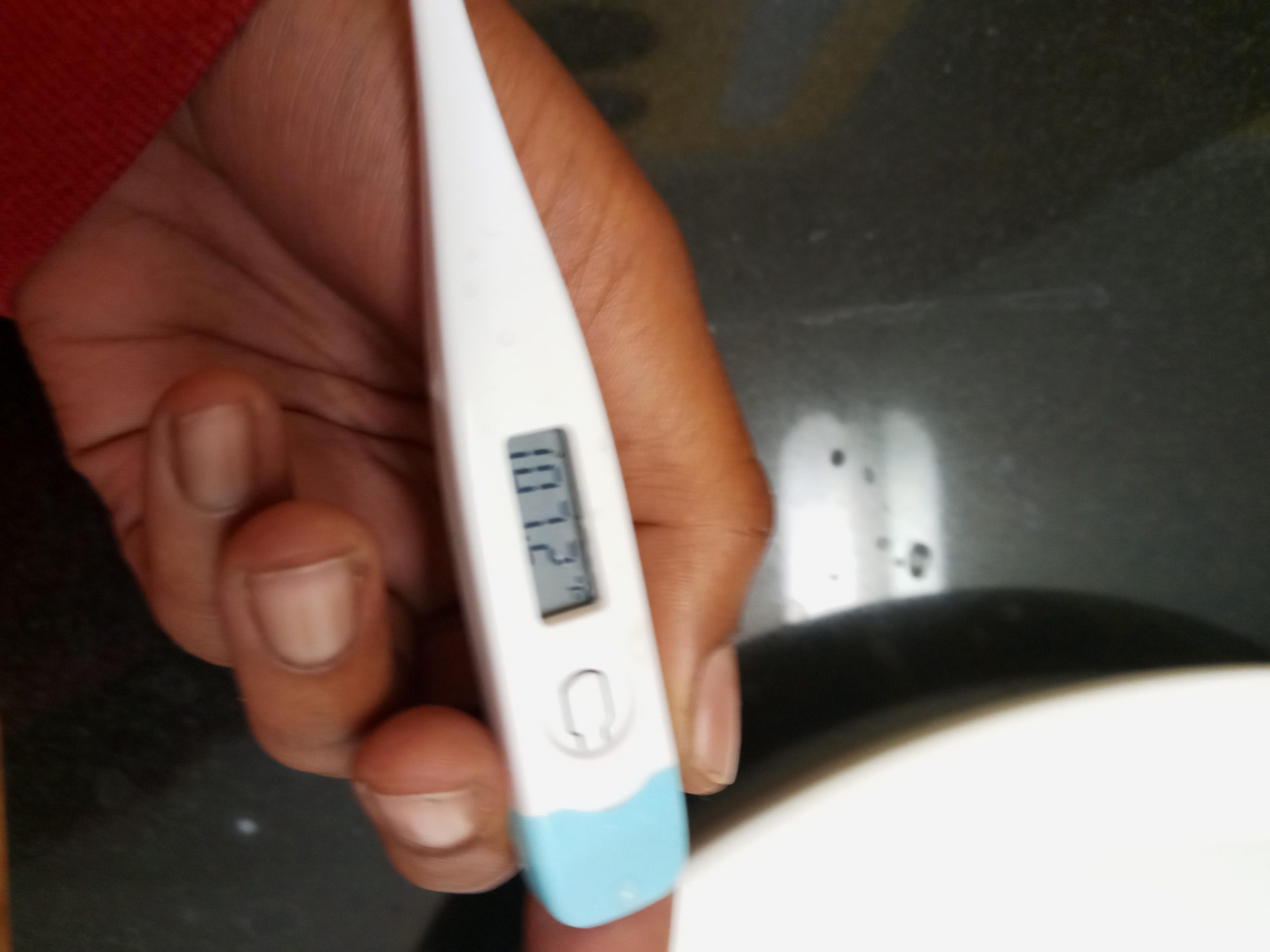
Image source: Reddit
Keep a record of your symptoms, including fever, cough, shortness of breath, chest pain, and fatigue. Note any changes in your condition and report them to your doctor promptly. If you start to feel more unwell, get an appointment to see your doctor right away.
43. Practice breathing exercises
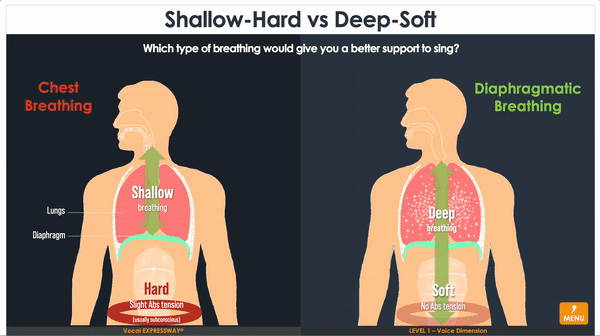
Image source: Reddit
Perform deep breathing exercises and controlled coughing techniques to help clear mucus from your airways and improve lung function. Consider consulting a respiratory therapist for guidance on effective breathing exercises. These can make a noticeable difference.
44. Elevate your head
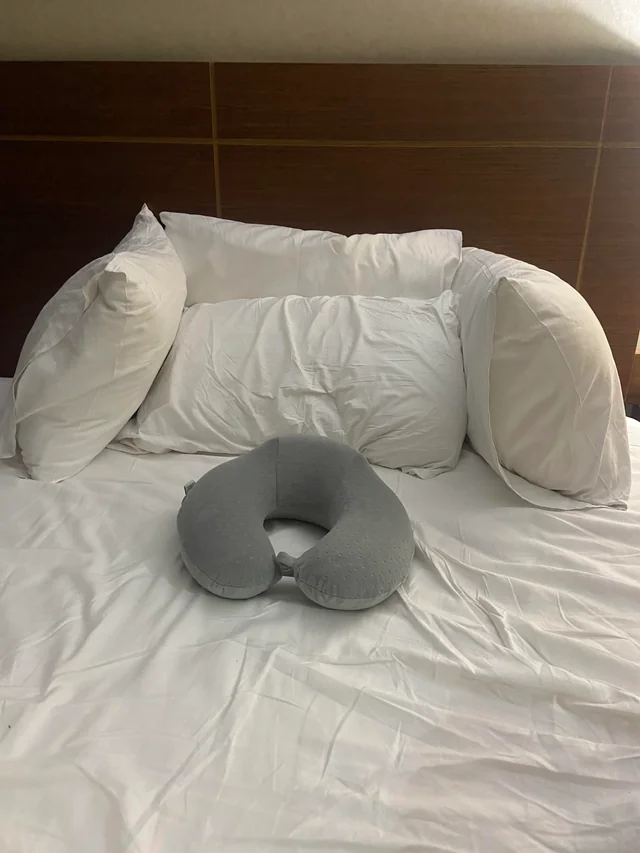 Image source: Reddit
Image source: Reddit
Sleep with your head elevated to ease breathing and reduce coughing at nigh Use extra pillows or a wedge pillow to elevate your head and upper body while sleeping. The same if you are lying on the sofa - use a pillow or cushions to stop you from lying flat.
45. Avoid crowded places

Image source: The Hollywood Reporter
Minimize exposure to crowded places, public transportation, and individuals who may have contagious illnesses to reduce the risk of secondary infections. Consider postponing non-essential outings and social gatherings until you have recovered. Don't rush to get back out there.
46. Wear a mask

Image source: Reddit
Wear a mask if you need to go out in public or be around others, especially in enclosed or crowded spaces and if you are coughing quite a lot. Choose a mask that covers your nose and mouth snugly and consists of multiple layers of breathable fabric. Always keep a spare mask in your bag.
47. Complete the full course of medication
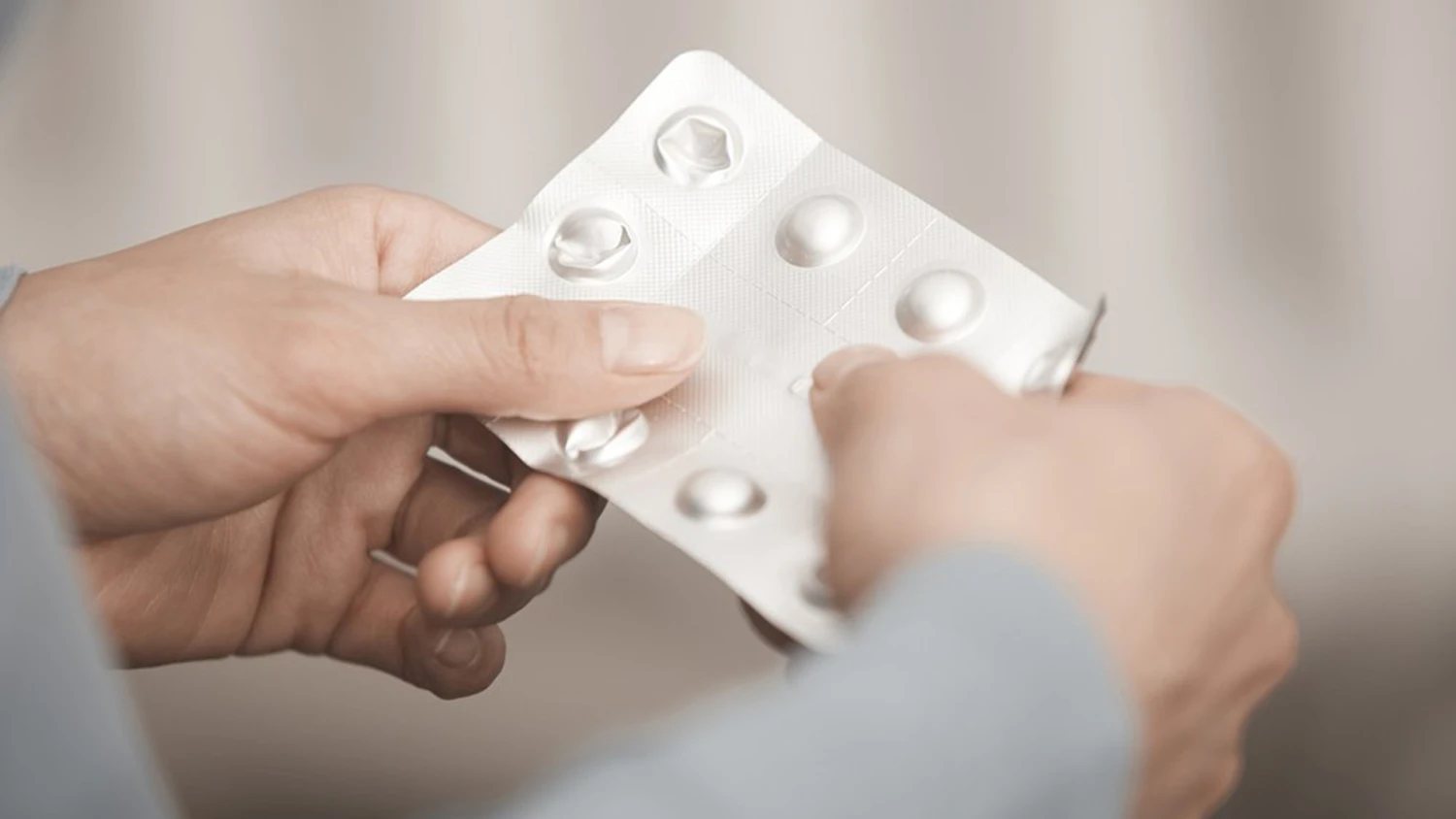
Image source: The Today Show
Finish the entire course of antibiotics or antiviral medications prescribed by your doctor, even if you start feeling better before completing the treatment. Skipping doses or stopping treatment prematurely can lead to antibiotic resistance and treatment failure.
48. Continue to stay informed
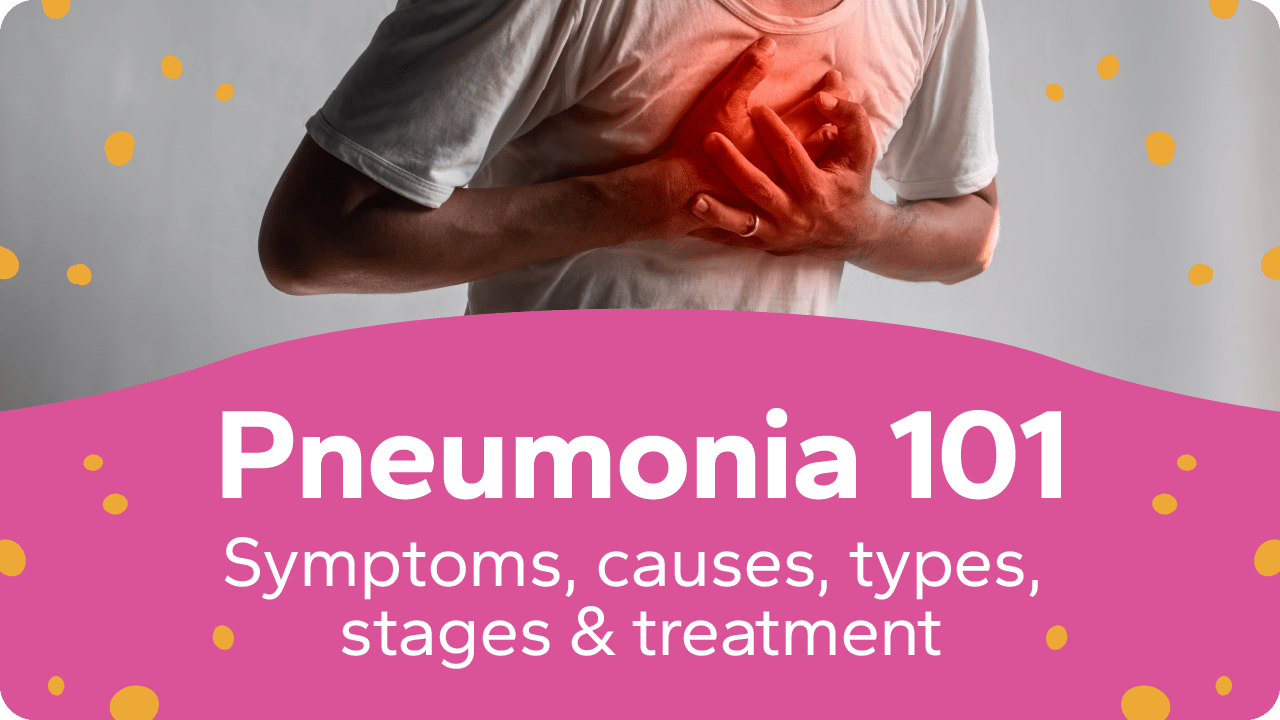
Image source: Homage
Stay informed about pneumonia, its symptoms, and potential complications. Seek reliable information from reputable sources such as healthcare professionals, government health agencies, and medical organizations. You can also google information but don't totally rely on it.
49. Think about vaccination in the future
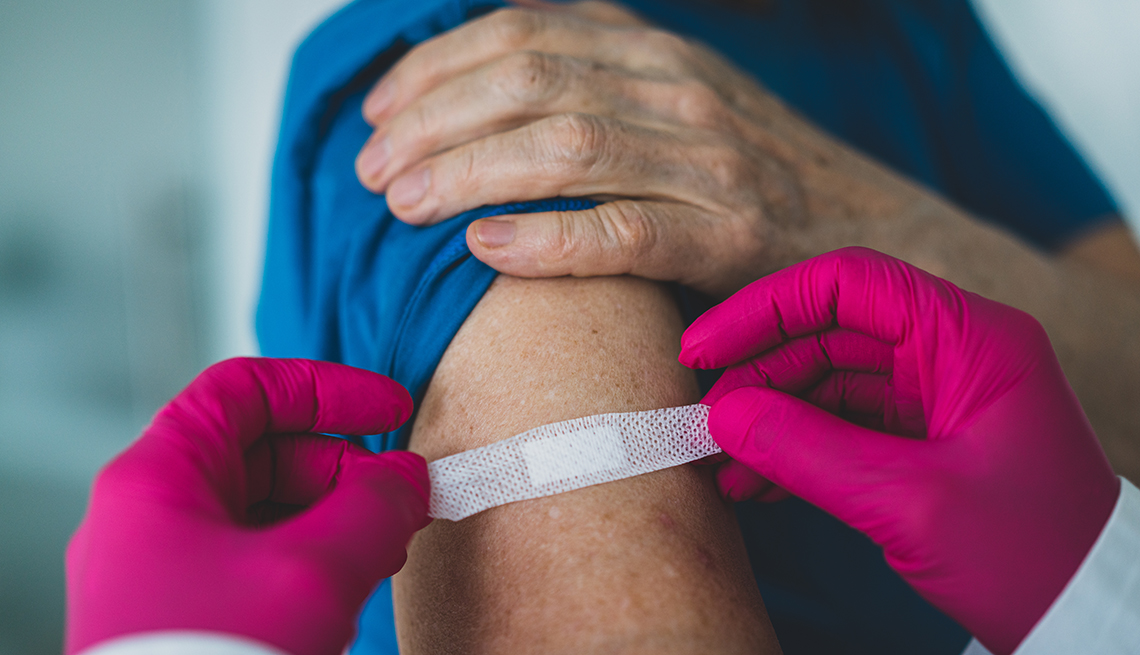
Image source: AARP
Discuss vaccination options with your healthcare provider, including the pneumococcal vaccine and influenza vaccine. Vaccination can help prevent certain types of pneumonia and reduce the severity of illness if infection occurs. This may be offered automatically to older individuals.
50. Make sure you attend the follow up with your doctor

Image source: Reddit
Attend all scheduled follow-up appointments with your healthcare provider to monitor your progress and ensure proper healing. Discuss any lingering symptoms or concerns with your doctor, and follow their recommendations for ongoing care and recovery.















 Image source: Reddit
Image source: Reddit


















 Image source: Reddit
Image source: Reddit Image source: Reddit
Image source: Reddit Image source: Reddit
Image source: Reddit




 Image source: Reddit
Image source: Reddit




